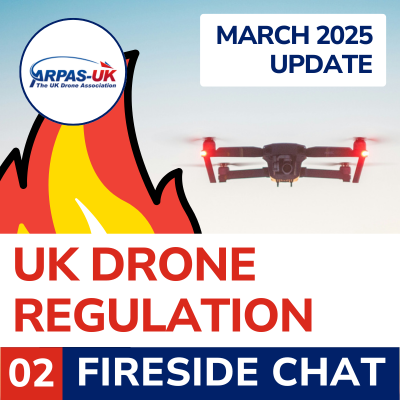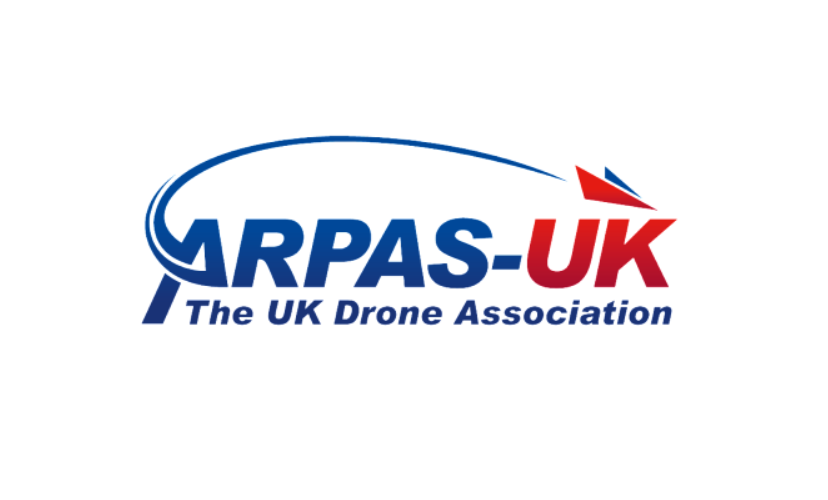

We’re delighted this year’s ARPAS-UK AGM & Annual Conference 2025 will take place at Cranfield University – a leading institution in aerospace and autonomous systems, and a long-standing ARPAS-UK member.
It’s the ideal setting for a day of insight, discussion, and networking. We know travel isn’t always possible, so the event will be hybrid, with the option to attend in person or online via Microsoft Teams.
Following the AGM, the programme will include talks and discussions across key industry themes. We’ll hear from end-users and sector leaders on market adoption, with speakers including Sellafield Ltd and Esri UK, followed by policy and regulation from the DfT and CAA, and sessions on innovation and airspace.
Interactive SLIDO will be run during the day to gather your views and questions.
Unable to attend in person? Submit your Proxy Vote to the Chair via the Registration Form – link below
We look forward to welcoming you – in-person or online – for what promises to be an engaging and valuable event!
Need to cancel? You may transfer your place to a colleague or contact [email protected]
March 2025

The CAA has released CAP722J: Unmanned Aircraft System Operations in UK Airspace – Recognised Assessment Entity for Flightworthiness (RAE-F) – 6 March 2025.
This is essential reading for any entity that is, or intends to become, a Recognised Assessment Entity for Flightworthiness (RAE-F), providing comprehensive details on the requirements, administrative processes, instructions, and guidance for operating as an RAE(F) within the UK.
CAP722J, along with the SAIL Mark Policy (CAP722K), outlines the technical assessments conducted by an RAE(F).
The policy should be used alongside the UK Specific Operations Risk Assessment (SORA), as detailed in the Acceptable Means of Compliance (AMC) and Guidance Material (GM) to Article 11 of Assimilated Regulation (EU) 2019/947.
To access CAP722J and ensure compliance with the latest standards, visit the CAA website.
6 March 2025

Join CEO Anne-Lise Scaillierez and Rupert Dent, Director of ARPAS-UK for our Fireside Chat 02. In this episode, Anne-Lise and Rupert discuss the UK SORA published by the CAA, on the 3 March 2025.
Watch the Fireside Chat 02 below and remember to subscribe to our YouTube channel, and hit the notification bell! Alternatively, listen to this new update on Spotify.
4 March 2025

The CAA (UK Civil Aviation Authority) published version 5 of CAP 722B on 3 March 2025 – “Unmanned Aircraft System Operations in UK Airspace – The UK Recognised Assessment Entity.”
The document outlines the requirements, administrative processes, instructions, and guidance for entities currently approved as RAEs or those wishing to attain such approval within the United Kingdom.
Key updates in this edition include the introduction of requirements for applications related to the new remote pilot competence scheme, as specified in the Acceptable Means of Compliance (AMC) to Article 8 of UK Regulation (EU) 2019/947. Additionally, the document provides new requirements and guidance material concerning the use of Flight Simulator Training Devices (FSTD) for remote pilot competence training.
The document has been restructured to enhance clarity, featuring specific requirements, means of compliance (if applicable), and guidance material sections.
For comprehensive details, please refer to the full CAP 722B document available on the CAA website.
3 March 2025

ARPAS-UK is sharing this information to its members. The survey is primarily targeting EASA-land UAS operators, but UK operators can contribute, especially as the UK will adopt its version of UKSORA. The objective it to collect evidence on the volume of flying hours and the level of incidents, to inform proportionate regulatory decision and SORA implementation.
This initiative follows a similar survey by the Dutch Drone Council (DCRO) and aims to provide evidence-based input for refining UAS regulations (see below, link to very instructive Dutch study).
The survey is open to UAS operators operating under IR (EU) 2019/947 in both the open and specific categories. The collected data will help assess the relationship between flight hours and incident rates, contributing to a better understanding of operational risks.
Participants are requested to report each Operational Approval or Risk Category separately and submit only commercial flight data to ensure statistical accuracy. The anonymised results will be shared with EASA and presented at events such as the European Drone Forum, where findings could help towards future regulatory adjustments. Participants will also receive a summary of the compiled results.
For more details on the survey, visit: UAV DACH UAS Operator Survey or see below.
The Dutch Association of Certified RPAS Operators (DCRO) conducted a study analysing 1.4 million flight hours, with the resulting data suggesting 1 in 100,000 flight hours for leaving the area and 1 in 1,000,000 flight hours for flyaways.
Key findings highlighted that professional UAS operators, who adhere to strict safety protocols, experience significantly lower risk levels than previously estimated. As a result, some SORA containment measures – such as Flight Termination Systems (FTS) – may introduce additional risks rather than mitigate them. DCRO recommended the standardisation of UAS safety data collection across Europe and revisions to containment regulations to align with real-world risk assessments.
For more information, please refer to our article on the DCRO White Paper findings here
12 February 2025

First: ARPAS-UK, the UK’s leading drone industry body, calls for a revision of the narrative surrounding the 2018 Gatwick Airport incident. No credible evidence of malicious drone activity at Gatwick Airport was provided post-investigations. Yet, to this day, the Gatwick Drone incident and its sensational coverage has had far-reaching negative implications for the drone industry.
Second: ARPAS-UK advocates for the responsible use of drones, both recreationally and commercially, and recommends addressing the evidence-based issue of airspace infringements near airports through education and awareness.
The 2018 Gatwick event
Despite the widespread reports at the time, subsequent investigations and freedom of information requests have failed to produce any credible evidence supporting claims of sustained malicious drone activity. As we enter 2025, continuing to assert that Gatwick Airport suffered a three-day disruption in December 2018 due to such activity lacks credible backing.
The ramifications of this incident have been far-reaching and detrimental to the drone industry. The sensational coverage has contributed to a negative perception of drones, leading to stricter regulations both in the UK and internationally. This event has also tarnished the industry’s reputation, with the public associating drones with disruption and danger. Such misperceptions overshadow the potential of drones to drive economic, environmental, and social benefits. Some media however seem unable to help themselves and cannot resist talking about 2018.
Addressing the evidence-based issue of airspace infringements near airports through education and awareness.
We support reasonable and proportionate measures to prevent misuse near sensitive areas such as airports, prisons, and critical infrastructure. Violating these laws, particularly actions that endanger aircraft, can lead to severe consequences, including imprisonment for up to five years.
Since 2018, airports have significantly improved their preparedness for drone-related incidents, with many implementing detection systems and streamlined response procedures to manage drone activity effectively.
However, too many unauthorised drone flights detected in restricted zones continue to pose challenges. Many of these involve very small recreational drones which, despite their size, pose risks to other aircraft. What if an incident were to happen?
We believe that part of the problem is that new fliers are not aware of, or do not understand the regulations and laws that are relevant to flying drones. ARPAS-UK strongly advocates for education, communication, and simplifying the advice to reduce unauthorised flights. By equipping drone users with the knowledge of legal requirements, associated risks, and the consequences of non-compliance, we can foster a culture of safety and responsibility. ARPAS-UK contributes to National Police Chiefs’ Council (NPCC) committees to address these concerns, promoting initiatives that support safe and lawful drone operations while encouraging innovation and growth within the industry.
The safe adoption of drones drives GDP Growth, health and safety as well societal benefits.
Drones have proven their value across various sectors. They take on tasks that are challenging, hazardous, and labour-intensive, reducing risks for workers while enhancing efficiency and productivity. From delivering life-saving medical supplies and conducting environmental monitoring to enhancing public safety and enabling infrastructure inspections, drones are transformative. With their electric propulsion systems, drones also contribute to CO2 reduction efforts.
Conclusion
The drone industry offers immense opportunities for societal and economic advancement. It is essential to base incident narratives on verified facts, and to support the safe use of drones across the recreational and commercial communities. ARPAS-UK remains committed to supporting the responsible and safe use of drones into our daily lives, delivering the benefits of this transformative technology.
About ARPAS-UK
ARPAS-UK is a Non-Profit Trade Association founded in 2013. We serve as the Collective Voice Empowering the UK drone Industry. Our objective is to accelerate the safe and professional adoption of drones across all industries, unlocking transformative for the economy and wider society.
ARPAS-UK strives to work in the general public interest. We engage with a broad range of stakeholders with a fair and balanced approach, we foster a collaborative approach across the ecosystem. We advocate respect, inclusiveness and politeness in exchanges, and request professionalism within its membership through compliance with an agreed Code of Conduct.

Thank you for helping us collect data on your experience over the last 12 months in terms of obtaining permissions to fly in a FRZ, or to take-off and land from private land. Primarily: did you get permission? Was it free and if not how much was it? How efficient was the process? Have you noticed an evolution over time?
The data will be processed anonymously, and findings will be bundled together as community responses.
Please respond to our survey by clicking HERE.